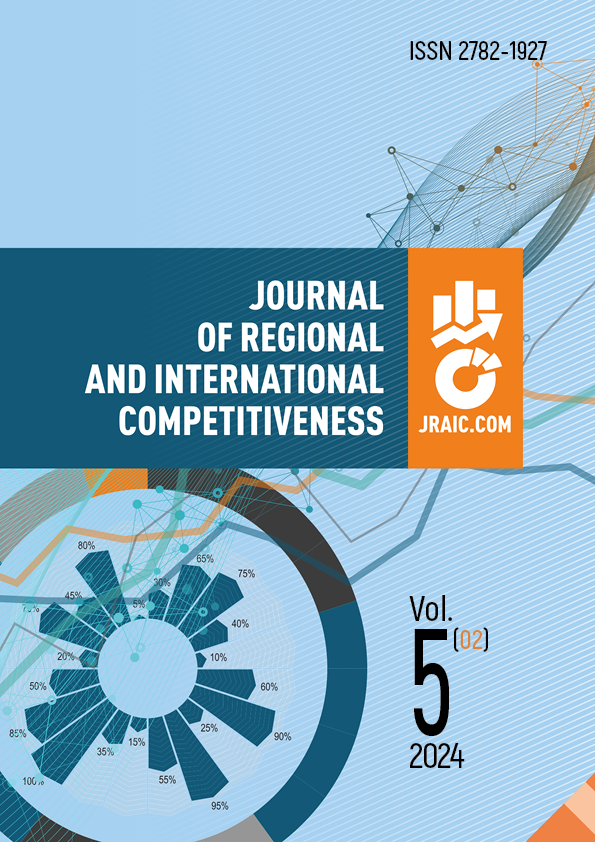Ivanovo, Russian Federation
The article deals with the dynamics of the theory of anti-crisis management of the organization (ACM) in modern conditions. The basic classifications of types of anti-crisis management are considered, their comparative analysis is carried out, conclusions are made that in modern conditions anti-crisis management of an organization is inseparably connected with its sustainable development, therefore, it comes to a new level, becoming a part of strategic management and especially actual today change management. The levels of anti-crisis management of the organization are marked out. The article pays special attention to the ambiguity of interpretation of the concept of «crisis of the organization». It is necessary for formation of effective anticrisis strategy of the organization to understand the essence of its basic concept – crisis, the research of its genesis and modern interpretations. The study of economic literature has shown that the understanding of crisis is ambiguous. There are two main positions have been formed in studies on the problems of crisis management to understand the nature of the crisis. One group of authors (E.M. Korotkov, T.N. Rogova, V.K. Krutikov, K.V. Baldin, S.E. Kovan, etc.) focuses on the negative manifestations of the crisis, its destructive function. Other researchers (A.S. Bolshakov, V.Y. Zakharov, A.D. Chernyakhovsky, N.D. Koryagin, A.S. Lifshits, V.M. Pishchulov, etc.) consider crises as a contradictory phenomenon and analyse their positive sides and creative role. The dual nature of crises predetermines the multi-purpose orientation of ACS and multifunctionality of its content. This is the peculiarity of the anti-crisis management system. The unified ACM system includes tools for crisis prevention, diagnosis, overcoming the crisis, enterprise restructuring strategy, methods of crisis prevention, methods of forecasting and planning, strategic management, as well as non-standard methods of personnel management. The author notes that crisis management tools should be integral components of sustainable enterprise development strategies.
crisis management; crisis theory; crisis of organization; organization life cycle theory; sustainable development of organization
1. Adizes, I. K. (2017). Corporate lifecycle management. Moscow: Al’pina Pablisher (in Russian).
2. Agabedyan, A. G., Klepach A. N., Porfiryev, B. N., Uzyakov, M. N., & Shirov A. A. (2020). Postpandemic recovery of the Russian economy and the transition to sustainable socio-economic development. Problemy prognozirovaniya, (6), 161-170 (in Russian).
3. Dobrowolski, Z. (2020). After COVID-19. Reorientation of crisis management in crisis. Entrepreneurship and Sustainability Issues, 8(2), 799-810.
4. Fasth, J., Elliot, V., & Styhre, A. (2022). Crisis management as practice in small- and medium-sized enterprises during the first period of COVID-19. Journal of Contingencies and Crisis Management, 30(7), 161170.
5. Kachalov, I. (2009). The crisis is the best time to grow. The 111 growth action plan. Moscow: AST (in Russian).
6. Kerimov, V. E. (Ed.) (2013). Accounting in the context of crisis management. Moscow: Izdatel’stvo torgovaya korporaciya «Dashkov i K°» (in Russian).
7. Korotkov, E. M. (2012). Crisis management. Moscow: INFRA-M (in Russian).
8. Koryagin, N. D. (2024). Crisis management. Moscow: Urait (in Russian).
9. Kukukina, I. G., & Astrakhantseva, I. A. (2004). Accounting and analysis of bankruptcies. Moscow: Finansy i statistika (in Russian).
10. Lifshits, A. S., & Ibragimova, R. S. (2023). Factors and tools for ensuring the sustainable development of mechanical engineering enterprises: monograph. Moscow: RIOR: INFRA-M (in Russian).
11. Menshikov, S. M. (1999). The new economy. Fundamentals of economic knowledge. Moscow: Mezhdunarodnye otnosheniya (in Russian).
12. Pauchant, T. C., & Morin, E. M. (1996). Crisis management and the prevention of production control. French Journal of management. Paris, (108), 90-99.
13. Pishchulov, V. M. (2009). Why do we need a crisis? Finansy i kredit, (13), 2-13 (in Russian).
14. Pluzhnikov, V. T., & Shikina S. A. (2016). Crisis management. Chelyabinsk: Izdatel’skij centr YUUrGU (in Russian).
15. Prokhorov, A. M. (Ed.). (2004). Large encyclopedic dictionary. Moscow: Sovetskaya enciklopediya (in Russian).
16. Rogova, T. N. (Ed.). (2014). Anti-crisis management of the enterprise. Ul’yanovsk: UlGTU (in Russian).
17. Ryakhovskaya, A.N., Kovan, S.E. (2016). The transformation of crisis management in modern economic conditions: a monograph. Moscow (in Russian).
18. Samuelson, P. A. (1992). Economics. Vol. 1. Moscow: MGP «Algon» (in Russian).
19. Spivak, V. A. (2024). Change management. Moscow: Urait (in Russian).
20. Zub, A. T. (2024). Crisis management. St. Petersburg: Piter (in Russian).




















